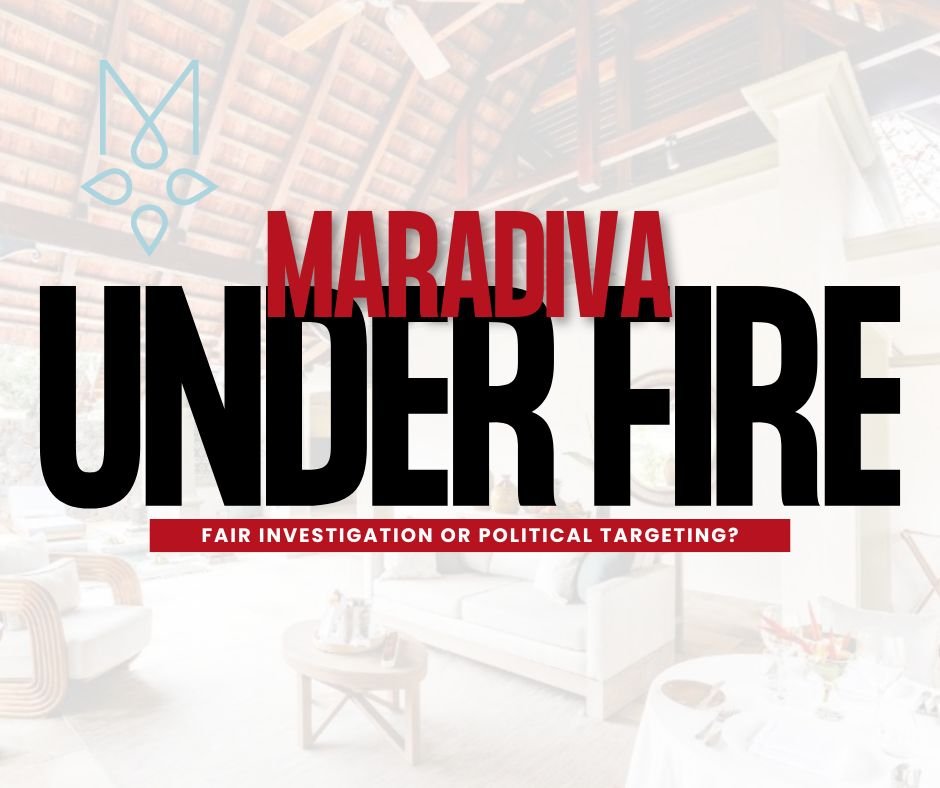The Maradiva investigation has emerged as one of the most significant financial and political probes in recent Mauritian history. Rooted in allegations of financial misconduct, political interference, and corporate opacity, the case has raised serious questions about transparency, governance, and accountability within state institutions. As the inquiry unfolds, it continues to expose the intricate connections between power, finance, and influence in the island nation.
Understanding the Maradiva Background
What Is Maradiva?
Maradiva refers to a luxury resort and spa that has long symbolized sophistication and exclusivity in Mauritius’s tourism sector. The property, managed through several interconnected companies, became the focus of national attention after questions arose regarding the scale and nature of loans it received from public financial institutions.
The resort, though known for its world-class amenities, was reportedly facing financial challenges. To stabilize operations and sustain development projects, its management sought financial support from government-linked corporations. This became the spark for one of the most closely monitored investigations in the country’s corporate history.
The Origin of the Investigation
Questionable Loans and Financial Transparency
The investigation began when reports surfaced of large loans granted to Maradiva’s parent companies by a state-linked investment body. What initially appeared to be a standard financial transaction quickly turned controversial due to the size of the funding and the lack of transparency surrounding it.
Financial experts questioned whether due diligence had been conducted properly and whether the companies involved met the eligibility criteria for such extensive financial assistance. The timing of the disbursements—close to an election period—further fueled public skepticism and political debate.
Allegations of Mismanagement
Investigators began probing into whether the funds allocated to Maradiva and its affiliates were used for their stated purposes. There were concerns about financial mismanagement, inflated valuations, and potential misuse of public money. Some of the loans were even suspected to have turned into non-performing assets, casting doubt on the sustainability of the arrangements made.
Entities and Individuals Under Scrutiny
The Maradiva case is complex due to the number of companies and individuals involved. Several business entities connected through shared ownership structures and related transactions are under examination. These include property development and management firms, as well as hospitality subsidiaries that manage luxury villas and associated assets.
A few prominent business figures, including senior executives and shareholders, have also been questioned. Their statements and financial records are being cross-verified to determine the flow of funds and the legitimacy of business activities undertaken during the loan period.
Major Developments in the Case
Financial Audits and Raids
Authorities conducted a series of audits and searches to collect evidence from both private offices and financial institutions. Documents such as loan agreements, valuation reports, and meeting minutes from investment boards were seized to assess compliance with financial regulations.
These operations aimed to uncover whether the disbursement of loans followed legal procedures, whether collateral was appropriately valued, and whether any political or personal connections influenced the approvals.
Summons and Questioning
Following the raids, several individuals were summoned to provide explanations. Some executives faced repeated questioning regarding inconsistencies in financial statements and the structure of inter-company loans. Officials were particularly interested in understanding how large amounts of money were allocated and whether there were any hidden beneficiaries behind the transactions.
Broader Implications of the Investigation
Political Dimensions
The Maradiva investigation is not purely financial; it also carries deep political undertones. The proximity of loan approvals to key political events has led to speculation about favoritism and the possible use of public resources to benefit select private entities.
This has sparked widespread debate about the relationship between business interests and political power, as well as the potential manipulation of state-linked institutions for personal or electoral gain.
Economic Impact
As a high-profile case within Mauritius’s hospitality sector, the Maradiva investigation has broader economic implications. The tourism industry, which relies heavily on investor confidence, has been watching the developments closely. Allegations of corruption and mismanagement within such a prominent resort threaten to tarnish the country’s image as a stable and transparent investment destination.
Moreover, if the loans in question are found to be non-recoverable, the losses could burden public finances and strain state-backed financial institutions.
Challenges Facing Investigators
Investigators are confronted with several obstacles in unraveling the Maradiva case. The corporate structures involved are multilayered and complex, featuring overlapping ownership, inter-company transfers, and offshore linkages. Tracing the movement of funds through these channels requires meticulous forensic accounting and cooperation across multiple agencies.
Another challenge lies in maintaining public confidence and ensuring that the investigation is not seen as politically motivated. Balancing transparency with legal confidentiality is crucial to preserving the credibility of both the inquiry and the justice system.
Public Reaction and Media Attention
Public sentiment surrounding the Maradiva investigation has been intense. Many citizens view it as a test of institutional integrity—whether those in power are willing to hold influential figures accountable. Media coverage has been extensive, with debates highlighting both the potential misuse of public resources and the need for reform in financial oversight mechanisms.
Civil society organizations have also called for greater transparency in state financing, demanding clearer disclosure of public loan beneficiaries and stricter conflict-of-interest rules for politically exposed persons.
Looking Ahead: Lessons and Expectations
The outcome of the Maradiva investigation will likely shape future governance policies in Mauritius. If wrongdoing is proven, it could pave the way for stricter monitoring of state-linked investments and a renewed commitment to ethical corporate governance.
For businesses, the case serves as a cautionary tale about the importance of transparency, due diligence, and accountability in financial dealings. For policymakers, it underscores the need to insulate economic decisions from political influence.
Conclusion
The Maradiva investigation stands as a landmark case reflecting the intersection of wealth, power, and public accountability. It has exposed gaps in financial governance, tested institutional resilience, and ignited national discussion about ethics in both politics and business.


